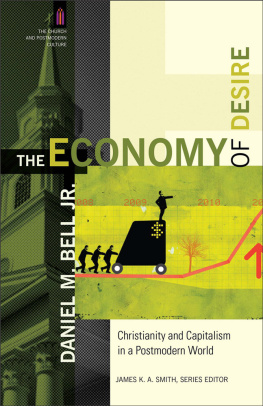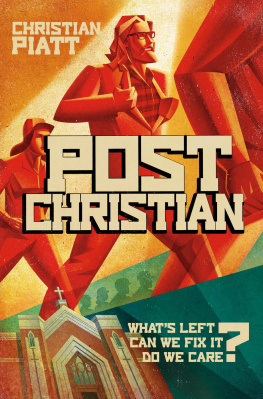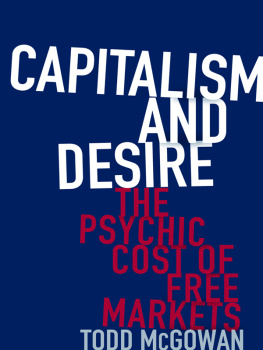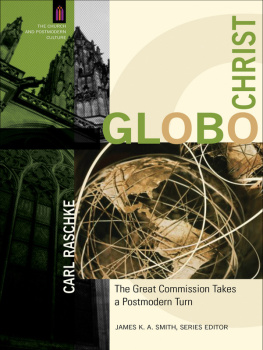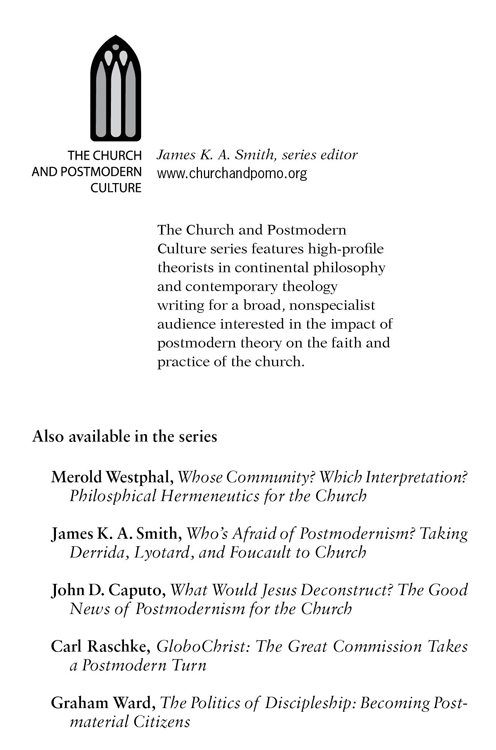

2012 by Daniel M. Bell Jr.
Published by Baker Academic
a division of Baker Publishing Group
P.O. Box 6287, Grand Rapids, MI 49516-6287
www.bakeracademic.com
Ebook edition created 2012
All rights reserved. No part of this publication may be reproduced, stored in a retrieval system, or transmitted in any form or by any meansfor example, electronic, photocopy, recordingwithout the prior written permission of the publisher. The only exception is brief quotations in printed reviews.
ISBN 978-1-4412-4041-5
Library of Congress Cataloging-in-Publication Data is on file at the Library of Congress, Washington, DC.
Scripture quotations are from the New Revised Standard Version of the Bible, copyright 1989, by the Division of Christian Education of the National Council of the Churches of Christ in the United States of America. Used by permission. All rights reserved.
The Internet addresses, email addresses, and phone numbers in this book are accurate at the time of publication. They are provided as a resource. Baker Publishing Group does not endorse them or vouch for their content or permanence.
SourceSansProl font license agreement: http://scripts.sil.org/OFL .

Contents
Series Preface
Series Editors Foreword
Preface
Introduction: What Has Paris to Do with Jerusalem?
1. The Multitude: The Micropolitics of Desire
2. Capital Desire: Capitalism as an Economy of Desire
3. What Is Wrong with Capitalism?
4. Capitalist Theology: The Agony of Capitalist Desire
5. Is Another Economy Possible? The Church as an Economy of Desire
6. The Economy of Salvation
7. Christian Economics
8. The Work of Mercy
Conclusion: Dishonest Wealth, Friends, and Etern
Notes
Index

Series Preface
Current discussions in the churchfrom emergent postmodern congregations to mainline missional congregationsare increasingly grappling with philosophical and theoretical questions related to postmodernity. In fact, it could be argued that developments in postmodern theory (especially questions of post-foundationalist epistemologies) have contributed to the breakdown of former barriers between evangelical, mainline, and Catholic faith communities. Postliberalisma related effect of postmodernismhas engendered a new, confessional ecumenism wherein we find nondenominational evangelical congregations, mainline Protestant churches, and Catholic parishes all wrestling with the challenges of postmodernism and drawing on the culture of postmodernity as an opportunity for rethinking the shape of our churches.
This context presents an exciting opportunity for contemporary philosophy and critical theory to hit the ground, so to speak, by allowing high-level work in postmodern theory to serve the churchs practiceincluding all the kinds of congregations and communions noted above. The goal of this series is to bring together high-profile theorists in continental philosophy and contemporary theology to write for a broad, nonspecialist audience interested in the impact of postmodern theory on the faith and practice of the church. Each book in the series will, from different angles and with different questions, undertake to answer questions such as What does postmodern theory have to say about the shape of the church? How should concrete, in-the-pew and on-the-ground religious practices be impacted by postmodernism? What should the church look like in postmodernity? What has Paris to do with Jerusalem?
The series is ecumenical not only with respect to its ecclesial destinations but also with respect to the facets of continental philosophy and theory that are represented. A wide variety of theoretical commitments will be included, ranging from deconstruction to Radical Orthodoxy, including voices from Badiou to iek and the usual suspects in between (Nietzsche, Heidegger, Levinas, Derrida, Foucault, Irigaray, Rorty, and others). Insofar as postmodernism occasions a retrieval of ancient sources, these contemporary sources will be brought into dialogue with Augustine, Irenaeus, Aquinas, and other resources. Drawing on the wisdom of established scholars in the field, the series will provide accessible introductions to postmodern thought with the specific aim of exploring its impact on ecclesial practice. The books are offered, one might say, as French lessons for the church.

Series Editors Foreword
J AMES K. A. S MITH
One of the reasons postmodernism is misused and misunderstood is that the term is often associated with what we might call a disruption thesis: the notion that postmodernism names something entirely new and radically differentthat postmodernism names a now that is somehow discontinuous with all that has gone before. When people hear postmodernism bandied about in this way, they look around, see an awful lot that is all too familiar, and dismiss such claims as overwrought, the sorts of things you can convince yourself of if youve spent a little too long in Left Bank cafs (or graduate school).
But the best thinking that employs the heuristic term postmodernism doesnt subscribe to such notions of discontinuity. To the contrary: the subtitle of Fredric Jamesons classic work, Postmodernism , describes it as The Cultural Logic of Late Capitalism. On this account, postmodernism is not less modern but more moderna kind of hyper -modernism, the intensification of forces unleashed by a variety of revolutions: Copernican, Industrial; French, American; Digital, Sexual.
This is especially true in fiction: those sometimes described as postmodern novelistsThomas Pynchon, David Foster Wallace, Don DeLillopaint pictures of worlds dominated by consumption and the unique malaise that characterizes late capitalism. Indeed, in Wallaces Infinite Jest , time itself is organized by corporate sponsors. The calendar no longer belongs to the gods and emperors (Janus, Mars, Julius, Augustus) but rather is owned by corporationsthe new divine powers. (Most of the action in Infinite Jest takes place in the Year of the Depend Adult Undergarment.) This world is postmodern not because it signals some romantic escape from the modern or some jarring break with modernity but because it is one completely saturated and dominated by the forces of modernity. Postmodernity isnt a world where modernity has failed; it is the world where modernity is all in all. Or as Daniel Bell puts it below, its the world where were all capitalists now.
Most Christian thinking about discipleship and spiritual formation has failed to appreciate this reality. Indeed, much of contemporary North American Christianity not only blithely rolls along with these realities; in many ways, it also encourages and contributes to it with a vast cottage industry of Christianized consumption. By locating the challenges for Christian discipleship in arcane cults or sexual temptation or the secularizing forces of the Supreme Court, evangelicalism tends to miss the fact that the great tempter of our age is Walmart. The tempter does not roam about as a horrifying monster, but as an angel of light who spends most of his time at the mall.

